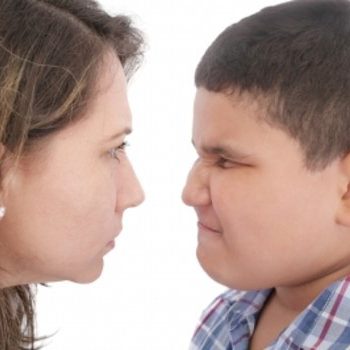Q: Why do you do this work? A: I do this work because I wish I had had someone who helped me when my child was young. It is hard to parent a child who struggles, it can be isolating. To have had someone who understood the types of things that I was going through would...
Q+A Articles
BHH Provider Profile: Deb Mason, Nurse Care Manager
Q: Why do you do this work? A: I like that there is more of an overall wellness focus in this role and that treatment is focused on the whole person. I like that this program specifically looks at mental and physical health as intertwined because, as a nurse, I know...
BHH Provider Profile: Carly Mahaffey, Adult Peer Support Specialist
Q: Why do you do this work? A: I like doing peer support and I’m good at it. I like that you can just connect with people as people and you don’t have to worry about a lot of paperwork or be constantly assessing the person. Q: What can you bring to clients/families...
Ask the Experts: School Challenges Mom and Kids
This article originally appeared in Macaroni Kid on September 16, 2020, by Luanne Starr Rhoades, LCPC, LADC, CCS; Health Affiliates Maine Question: My kids suffered greatly when their schools went remote last spring due to COVID-19. I am trying hard to prepare as...
Tough Times, Tough Talk—What to Do When Kids Overhear
This article originally appeared in Macaroni Kid on May 21, 2020, by Luanne Starr Rhoades, LCPC, LADC, CCS; Health Affiliates Maine Question: Our 11-year old daughter overheard my husband and I discussing finances and is asking some tough questions. My husband was...
Teen is Depressed and Disrupted. How Do I Approach Him?
This article originally appeared in Macaroni Kid on June 15, 2020, by Luanne Starr Rhoades, LCPC, LADC, CCS; Health Affiliates Maine. Question: My 19-year-old just finished his first year in college--remotely most of this last semester, of course. He suffers from...
Coronavirus Uncertainty: Kids and Mom Struggle with Not Knowing
This article originally appeared in Macaroni Kid on May 21, 2020, by Luanne Starr Rhoades, LCPC, LADC, CCS; Health Affiliates Maine Question: Phew. I am having a hard enough time getting through remote schooling with my kids these past months and now I am hearing...
Husband’s Gambling is Not a Game
This article originally appeared in Macaroni Kid on Februaury 11th, 2020 by Luanne Starr Rhoades, LCPC, LADC, CCS; Health Affiliates Maine Question: I believe my husband may have a gambling problem. What started as a few nights of card games out with the guys has...
Mom Feels Unsafe with Angry Teen
This article originally appeared in Macaroni Kid on January 9th, 2020 by Luanne Starr Rhoades, LCPC, LADC, CCS; Health Affiliates Maine Question: I am a single mom to two kids. My oldest son is 16 and taller, bigger, and stronger than me. He has recently switched...









